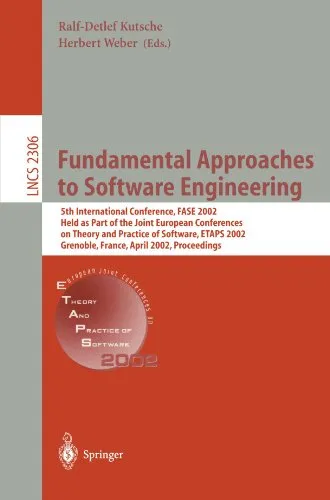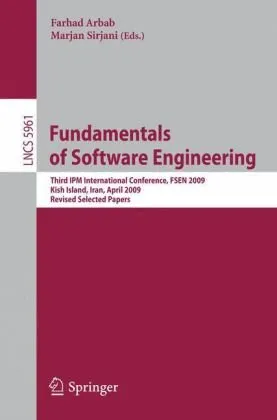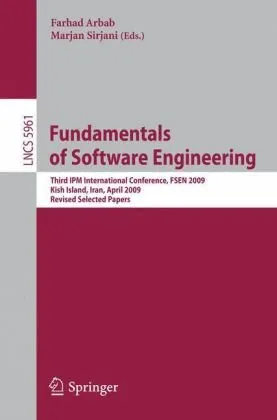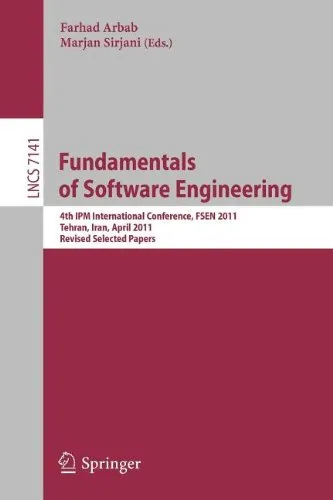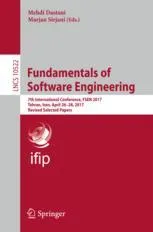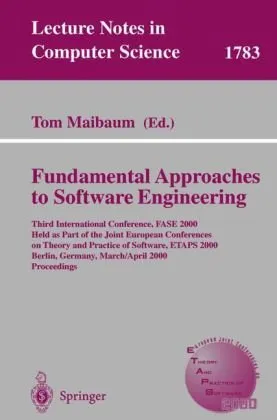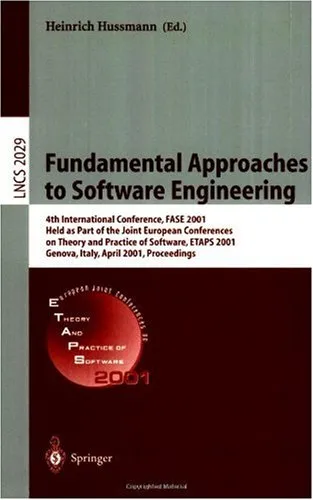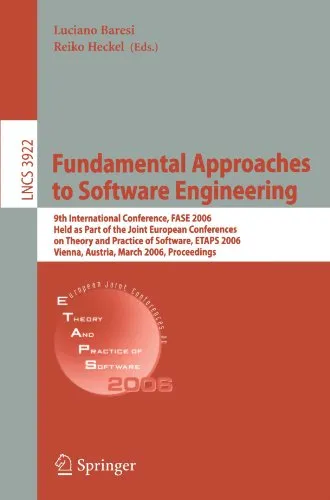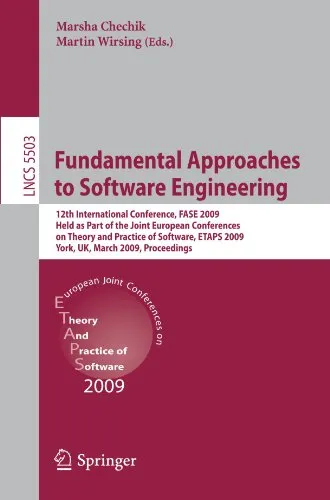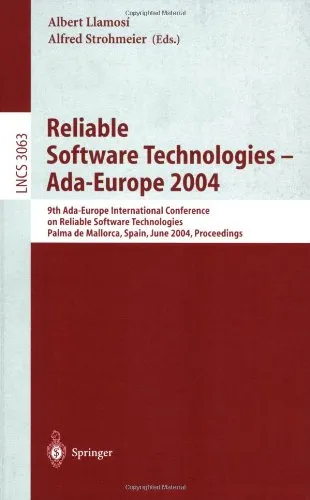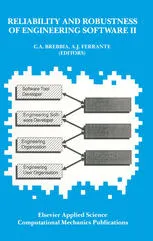Fundamental Approaches to Software Engineering: 5th International Conference, FASE 2002 Held as Part of the Joint European Conferences on Theory and Practice of Software, ETAPS 2002 Grenoble, France, April 8–12, 2002 Proceedings
4.0
Reviews from our users

You Can Ask your questions from this book's AI after Login
Each download or ask from book AI costs 2 points. To earn more free points, please visit the Points Guide Page and complete some valuable actions.Related Refrences:
Introduction
Software engineering is the cornerstone of modern computing, enabling the development of complex systems that meet the ever-growing demands of technology and business. Fundamental Approaches to Software Engineering: 5th International Conference, FASE 2002, is a significant contribution to this domain, offering a comprehensive collection of research papers presented during the prestigious FASE conference, held as part of the Joint European Conferences on Theory and Practice of Software, ETAPS 2002. This volume captures the state-of-the-art in software engineering practices, tools, and methodologies, catering to researchers, practitioners, and students alike.
The conference proceedings emphasize combining theoretical insights with practical applications, bridging the gap between academia and industry. With contributions from some of the finest minds in the field, this book serves as an essential resource for understanding the foundational principles and future directions of software engineering. Covering topics such as specification techniques, analysis tools, verification methods, and software modeling approaches, the book is designed to inspire innovation and enhance the rigor of software development processes.
Detailed Summary of the Book
Fundamental Approaches to Software Engineering begins with an exploration of foundational methodologies, addressing formal methods that underpin software development. These methods ensure precision in specification and verification, presenting a framework for reliable and secure software systems. The proceedings delve into topics such as model-based design, process algebra, and software architecture design, offering groundbreaking approaches to tackling complex software problems.
Another critical theme in this collection is software verification, where researchers introduce tools and techniques to ensure software correctness. Papers in this section discuss advancements in model checking, symbolic execution, and automated reasoning, providing novel insights into the automation of verification processes. These innovations empower developers to detect defects early in the development lifecycle, saving both cost and time.
Beyond theoretical concerns, the book also focuses on practical software engineering challenges. Case studies highlight real-world applications of the proposed methodologies, demonstrating their viability across diverse industries. Topics such as component-based design, adaptive systems, and software reuse illustrate how traditional software practices are evolving to meet emerging technological needs.
Key Takeaways
- Comprehensive insights into foundational software engineering methods and their practical implications.
- Advances in software specification, formal modeling, and verification techniques to improve reliability.
- Highlights of innovative tools designed to enhance software analysis and automated verification.
- Case studies bridging the gap between research and industry, demonstrating the practical utility of formal methods.
- A vision for future trends in software engineering to address the challenges posed by dynamic and distributed systems.
Famous Quotes from the Book
"Software engineering is not just about writing code; it is the art of crafting reliable, efficient, and scalable systems through rigor and discipline."
"Formal methods in software engineering are not simply theoretical exercises; they are tools that shield us from the chaos of complexity."
"The future of software relies on our ability to model and verify—increasingly dynamic and adaptive systems—with precision and innovation."
Why This Book Matters
In the rapidly evolving technological landscape, software engineering forms the backbone of innovation. This book matters because it brings together seminal research that has shaped modern software practices. By balancing theoretical depth and practical relevance, it provides a unique perspective on how software systems can be modeled, verified, and developed with confidence.
As enterprises increasingly depend on software for their operations, the importance of building robust and reliable systems cannot be overstated. The insights presented in this book equip engineers and researchers with the tools to meet this challenge, cultivating best practices that ensure software quality. Furthermore, for students, this compilation offers an invaluable opportunity to learn from experts and grasp the nuances of advanced software engineering techniques.
Ultimately, Fundamental Approaches to Software Engineering stands as a testament to the importance of continued innovation in engineering reliable software systems. Its guidance is not only timely but also timeless, making it a crucial reference for anyone seeking to understand how formal methods can address the evolving challenges of software development.
Free Direct Download
You Can Download this book after Login
Accessing books through legal platforms and public libraries not only supports the rights of authors and publishers but also contributes to the sustainability of reading culture. Before downloading, please take a moment to consider these options.
Find this book on other platforms:
WorldCat helps you find books in libraries worldwide.
See ratings, reviews, and discussions on Goodreads.
Find and buy rare or used books on AbeBooks.
1290
بازدید4.0
امتیاز0
نظر98%
رضایتReviews:
4.0
Based on 0 users review
Questions & Answers
Ask questions about this book or help others by answering
No questions yet. Be the first to ask!
